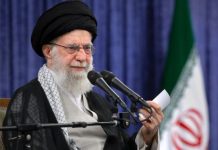Air Marshal Asim Suleiman (Retd)
Over the past four decades, China has gradually risen to become a major power on the global stage. The Chinese leadership’s focus on uplifting its citizens and prioritising national development has been the determining factor in its ascent. Today, China is one of the largest traders in the world and retains a major proportion of global manufacturing. It is now investing in modern technologies and fields with significant potential, including artificial intelligence, solar energy, and biotechnology.
China currently holds the highest amount of foreign reserves, totalling $3.2 trillion. Another advantage of this progress has been the strengthening of China’s military. While its military expenditures are not as high as those of the United States—standing at $296 billion compared to the $916 billion spent by the US—China is poised to match US expenditure in the coming decades. Furthermore, China has amassed significant power on the international stage, enough to challenge the hegemony of the US and the institutions it employs to maintain its global dominance. China achieved this by focusing on the five principles that have been the cornerstone of its policies for the past 70 years: mutual respect for territorial integrity and sovereignty, mutual non-aggression, mutual non-interference in internal affairs, equality and cooperation, and peaceful coexistence. These are the principles that China’s current leadership upholds and aims to enrich to address emerging global challenges.
Pakistan, despite its long association and all-weather friendship and strategic partnership with China, is struggling with a dwindling economy, internal strife, and entanglement in great power rivalry in the region. It currently faces $130 billion in debt, equivalent to one- third of its GDP, with over $68 billion owed to China. Despite major investments in the China-Pakistan Economic Corridor (CPEC), economic returns are yet to materialise. To further complicate the situation, Pakistan faces pressure from the International Monetary Fund (IMF) to address its debt issues with China. Pakistan’s attempts to secure debt
rescheduling from China are likely to lead to additional loans, rather than actual relief, which may contribute to the country’s mounting debt burden.
CPEC is a game-changer and must be treated as such. The development of necessary infrastructure in Pakistan’s Special Economic Zones (SEZs) has faced delays. To fully leverage these SEZs, it is essential to create opportunities for both domestic and international investors. Establishing these areas / zones in Pakistan can drive growth and create jobs, benefiting the local economy. Pakistan must also strengthen itself internally to attract more investment. Typically, economic difficulties deter investors, as no international organisation deems it viable to invest in a volatile environment. There have been unfortunate instances of companies relocating from states facing economic challenges.
Recently, the Prime Minister’s visit to China radiated positive signals, as both sides agreed to upgrade the mega project by building new corridors. They also committed to rehabilitating the Karakoram Highway and further optimising the use of Gwadar Port. The Chinese side pledged to train 1,000 young Pakistani citizens in technology and agriculture to prepare them to spearhead these domains in the country. Moreover, technology giant Huawei is poised to prepare 200,000 young Pakistanis in IT to fast-track the country’s efforts to digitise its economy and promote e-governance. During this visit, both sides announced that third parties would be welcomed to participate in priority areas of industry, agriculture, ICT, science and technology, and mining. Inviting third parties will provide the much-needed impetus to get things done.
As Pakistan pursues development through collaboration with China, it needs to ensure that the business environment is conducive for companies to operate smoothly, red tape is eliminated to fast-track operations, and companies are extensively facilitated. Pakistan must prioritise Chinese investments in Pakistan, as they are indeed a cornerstone of bilateral cooperation and a testament to the longstanding partnership between the two countries. On this note, Pakistan should also make efforts to counter Western propaganda against them. It should highlight the role of spoilers to the international community and make plausible efforts to thwart their attempts.
In conclusion, in this era of geopolitical instability, Pakistan’s close ties with China are a valuable opportunity that must be utilised extensively. Pakistan should make the best of Chinese assistance to not only modernise its industries but also to progress rapidly in various domains. Lastly, the Chinese experience must serve as a guiding example for Pakistan to eradicate poverty and ensure the well-being of its people.
Air Marshal Asim Suleiman (Retd) is President at the Centre for Aerospace and Security Studies (CASS), Lahore.

















